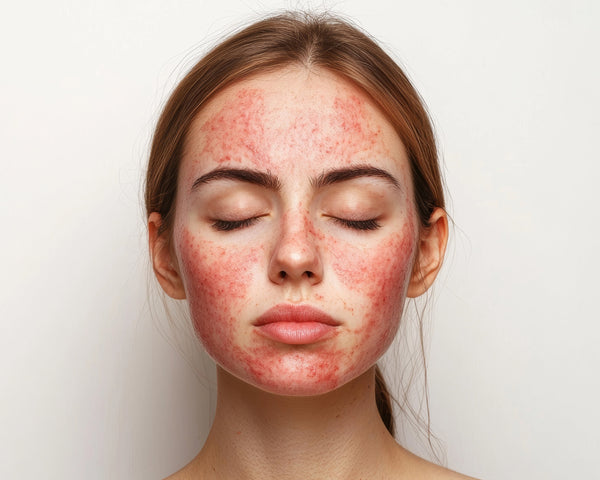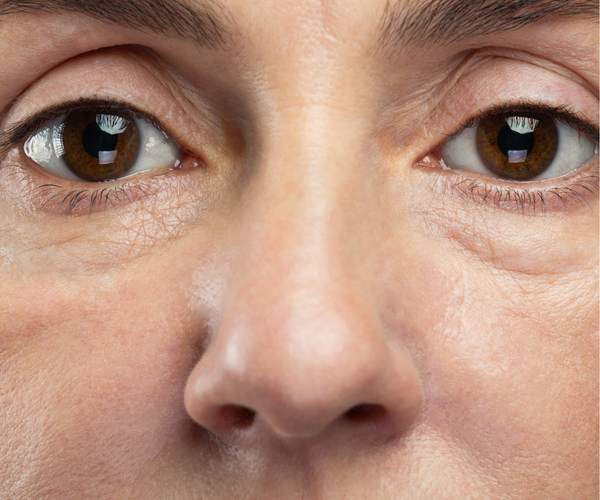How Skincare Gets Into Your Bloodstream: A Double-Edged Sword for Health

When you apply a skincare product, you may only think about its immediate effects—hydrated skin, a brighter complexion, or a soothed irritation. But have you ever stopped to consider what happens beneath the surface? The ingredients in skincare products can penetrate your skin and enter your bloodstream, influencing not only the health of your skin but also your overall well-being. Understanding this process can help you make informed choices about the products you use and their potential impacts on your health.
The Science of Skin Absorption
Your skin is an incredible barrier, protecting you from external harm while maintaining your body’s internal balance. However, it isn’t entirely impermeable. Certain molecules in skincare products can penetrate the outer layer of the skin, known as the stratum corneum, and reach the deeper layers where blood vessels are present. From there, these substances can enter your bloodstream.
Key factors that influence skin absorption include:
-
Molecule size: Smaller molecules are more likely to penetrate the skin.
-
Solubility: Fat-soluble ingredients have an easier time moving through the lipid-rich layers of the skin.
-
Formulation: Enhancers like alcohols or liposomes in products can increase absorption.
-
Application area: Thin-skinned areas like the face or underarms are more permeable.
Beneficial Ingredients That Support Health
Not all skincare ingredients that reach your bloodstream are harmful. Some can deliver health-boosting benefits:
-
Vitamins and Antioxidants: Ingredients like Vitamin C, Vitamin E, and green tea extract help neutralize free radicals, reducing oxidative stress that leads to premature aging and other skin issues.
-
Essential Fatty Acids: Found in oils like argan and jojoba, these strengthen the skin’s barrier and provide anti-inflammatory benefits.
-
Hyaluronic Acid: Though its primary role is hydrating the skin’s surface, small amounts may improve tissue health when absorbed deeper.
-
Peptides: These stimulate collagen production and support skin repair and rejuvenation.
By choosing products with natural, well-researched ingredients, you can promote healthier skin and overall wellness.
Harmful Ingredients That Pose Risks
On the flip side, certain skincare ingredients can be detrimental when absorbed into the bloodstream:
-
Parabens: Commonly used as preservatives, parabens are endocrine disruptors that may interfere with hormone function.
-
Phthalates: Found in synthetic fragrances, these chemicals have been linked to reproductive and developmental issues.
-
Synthetic Colors and Fragrances: These can cause allergies, irritation, and potential long-term toxicity.
-
Heavy Metals: Traces of lead, mercury, and cadmium sometimes contaminate skincare products and can accumulate in the body over time.
-
Formaldehyde-Releasing Agents: Used in some preservatives, formaldehyde is a known carcinogen and skin sensitizer.
How to Make Safer Choices
To protect your skin and overall health, follow these tips:
-
Read Labels: Look for products with transparent ingredient lists and avoid known harmful chemicals.
-
Choose Natural and Organic: Products with plant-based ingredients and minimal processing are often safer for both your skin and body.
-
Patch Test: Always test new products on a small area of skin to check for reactions.
-
Stay Informed: Research brands and their ingredient sourcing practices to ensure they prioritize safety and quality.
The Bottom Line
The skincare products you use can have a profound impact on your health, extending far beyond surface-level beauty. By understanding how ingredients penetrate the skin and enter your bloodstream, you empower yourself to make choices that benefit not only your skin but also your entire body. Prioritize clean, natural, and effective products to enjoy radiant skin and lasting well-being.




